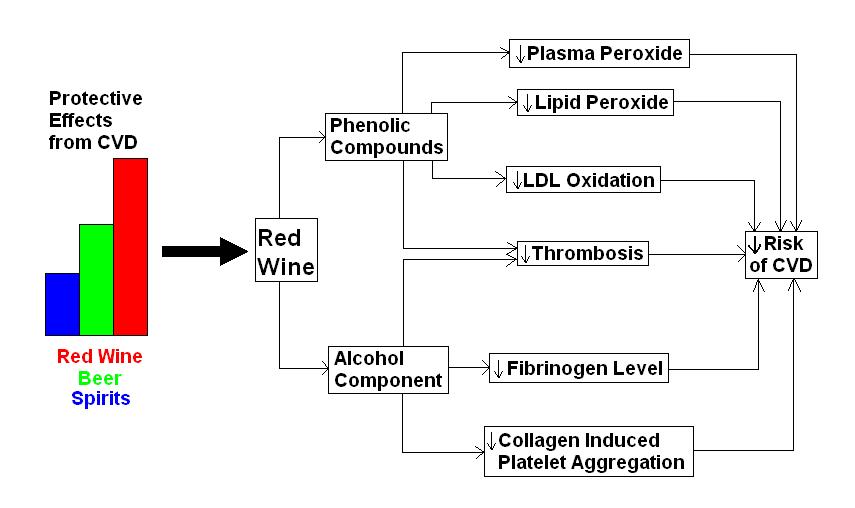Researchers became interested in the health effects associated with drinking red wine because epidemiological studies showed that consumption confers a protective effect against cardiovascular disease. Red wine contains a number of polyphenol compounds present in grapes including resveratrol, quercetin and a number of other phenolic compounds. These compounds are now thought to provide at least some of the protective effects from red wine consumption. However, as the literature surrounding red wine has grown in size, it has become clear that alcohol provides protective effects from cardiovascular disease over and above those from the phenolic constituents. A review of the literature published in the American Journal of Clinical Nutrition in 20011 concluded that both phenolic components of the red wine as well as the alcohol itself were responsible for the beneficial effects of red wine (figure 1).
 Figure 1. The effects of red wine polyphenols and alcohol on the cardiovascular system
Figure 1. The effects of red wine polyphenols and alcohol on the cardiovascular system
Consumption of alcohol for improved health is controversial because there is a concern over the toxicity attached to high intakes of alcohol, particularly because of damage to the liver. However, the polyphenolic components of red wine can decrease peroxidation of circulating plasma and lipids as well as decrease lipoprotein oxidation. The alcohol is able to decrease fibrinogen levels in the blood as well as decrease platelet activation. Both alcohol and polyphenols are able to cause a reduction in thrombosis. All of these effects contribute to the protective effect of red wine from cardiovascular disease. The high polyphenol content of red wine compared to other alcoholic beverages suggests that it is able to confer the greatest protection. However, cider in known to contain a number of polyphenolic compounds that are present in apples, and may therefore be just as beneficial.
RdB
